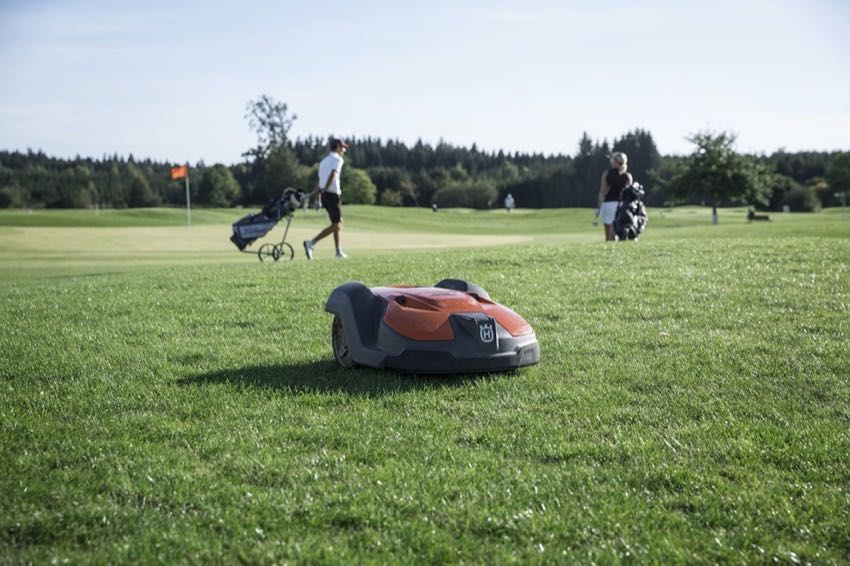Revolutionizing Landscaping with Commercial Robotic Lawn Mowers
If you’ve seen a small, unmanned device cutting a neighbor’s grass, you already know that residential robotic lawn mowers have gained in popularity. It’s easy to understand the reason: they offer a carpet-like lawn of constant height—and a lot more free time! It’s only natural for Pro landscapers to wonder if the same technology can help them make the jump to using commercial robotic lawn mowers in their work.
The Grass Is Greener
Steve Uljua, a Product Manager at Husqvarna focused on robotics, sheds light on the landscape of commercial robotic lawn mowers. He explains that while Europe has seen success with residential robotic products, the commercial market there is small. However, in North America, the largest landscape market in the world, the introduction of the Automower 550 for commercial applications two years ago has sparked growth in this sector. With its own sales director and sales force, Husqvarna’s commercial robotic lawn mower segment is set to surpass its residential sales in the coming years.
The Automower 550, based on the residential 450X platform, offers a user-friendly interface for Pros, eliminating the need for a pin number and retaining safety and theft protection features. These include lift sensors, geofencing, GPS tracking, and app-based Bluetooth control.
Commercial Robotic Lawn Mowers Now
While the adoption of commercial robotic lawn mowers is still in its early stages, Steve emphasizes the benefits for Pro landscapers. These robotic mowers can actually help Pros earn more money by upselling additional landscaping services, providing consistent lawn height and cut quality, reducing noise, preventing muddy wheel marks, and minimizing the presence of strangers around properties.
Addressing concerns about cost, Steve presents a compelling case for the long-term savings of a robotic fleet compared to traditional mowers. With reduced maintenance costs, labor consistency, and longevity of the machines, the investment in commercial robotic lawn mowers can pay off significantly over time. Customers are even willing to sign multi-year leases, making the setup costs more appealing.
Commercial Robotic Lawn Mowers Soon
Looking ahead, Husqvarna is set to introduce EPOS technology, utilizing RTK technology for satellite-guided mowing in large areas. This advancement eliminates the need for a buried guide wire, offering precision down to the centimeter level. EPOS opens up possibilities for large properties like golf courses and parks, as well as potential for streamlined operations for Landscape Pros.
With the introduction of large diesel-battery hybrids with EPOS, even larger spaces such as airports and rough terrain can benefit from the efficiency and precision of commercial robotic lawn mowers. The future looks promising for the integration of this technology into landscaping practices.
A Quality Cut
As Husqvarna continues to collaborate with developers to make large spaces more robotic mower-friendly, the focus remains on enhancing the aesthetics and quality of landscaping. By utilizing robotic mowers, properties can achieve superior cut quality, leading to better shoot density, improved mud control, and reduced need for fertilization and water. The benefits of commercial robotic lawn mowers extend beyond convenience to environmental and aesthetic advantages.
As more Pros embrace commercial robotic lawn mowers for their landscaping businesses, the industry is poised for a transformation towards efficiency and sustainability. With the support of innovative technology and forward-thinking companies like Husqvarna, the future of landscaping looks greener than ever.
Special thanks to Maggie Coleman with Brandware PR, and Steve Uljua, Product Manager, focused on robotics at Husqvarna, for their insights and expertise in the field of commercial robotic lawn mowers.

